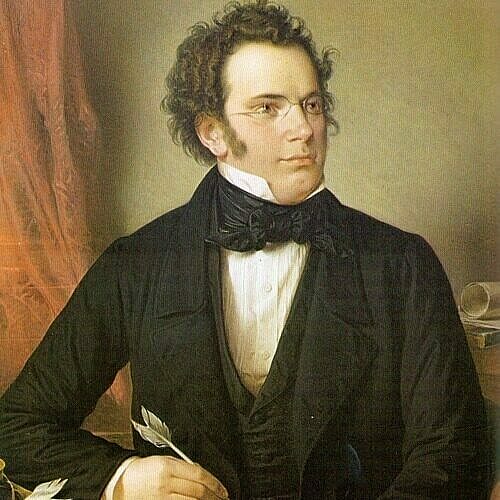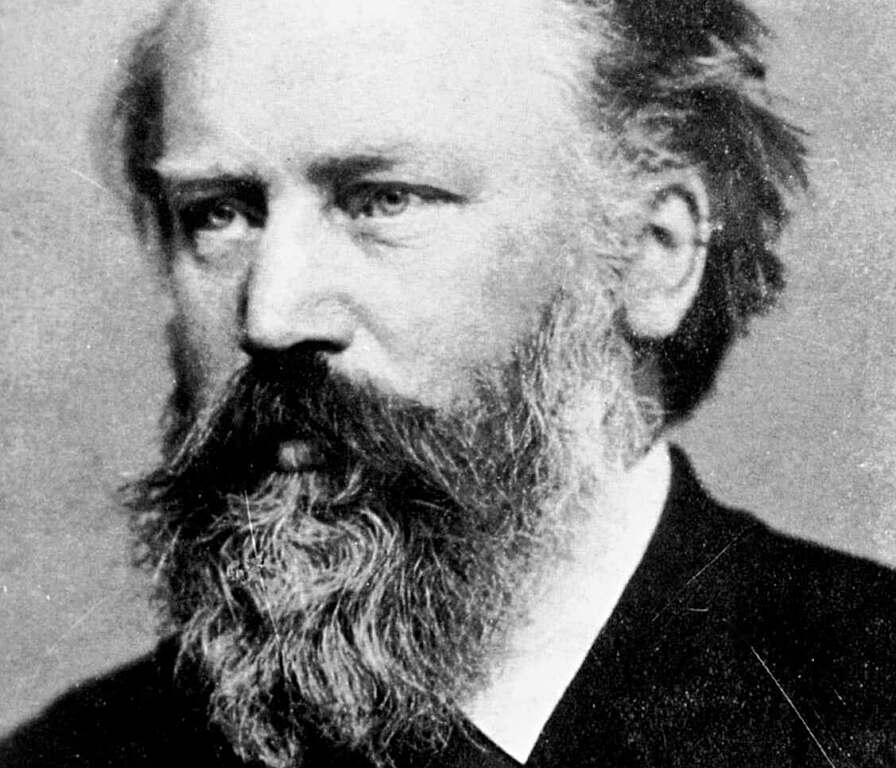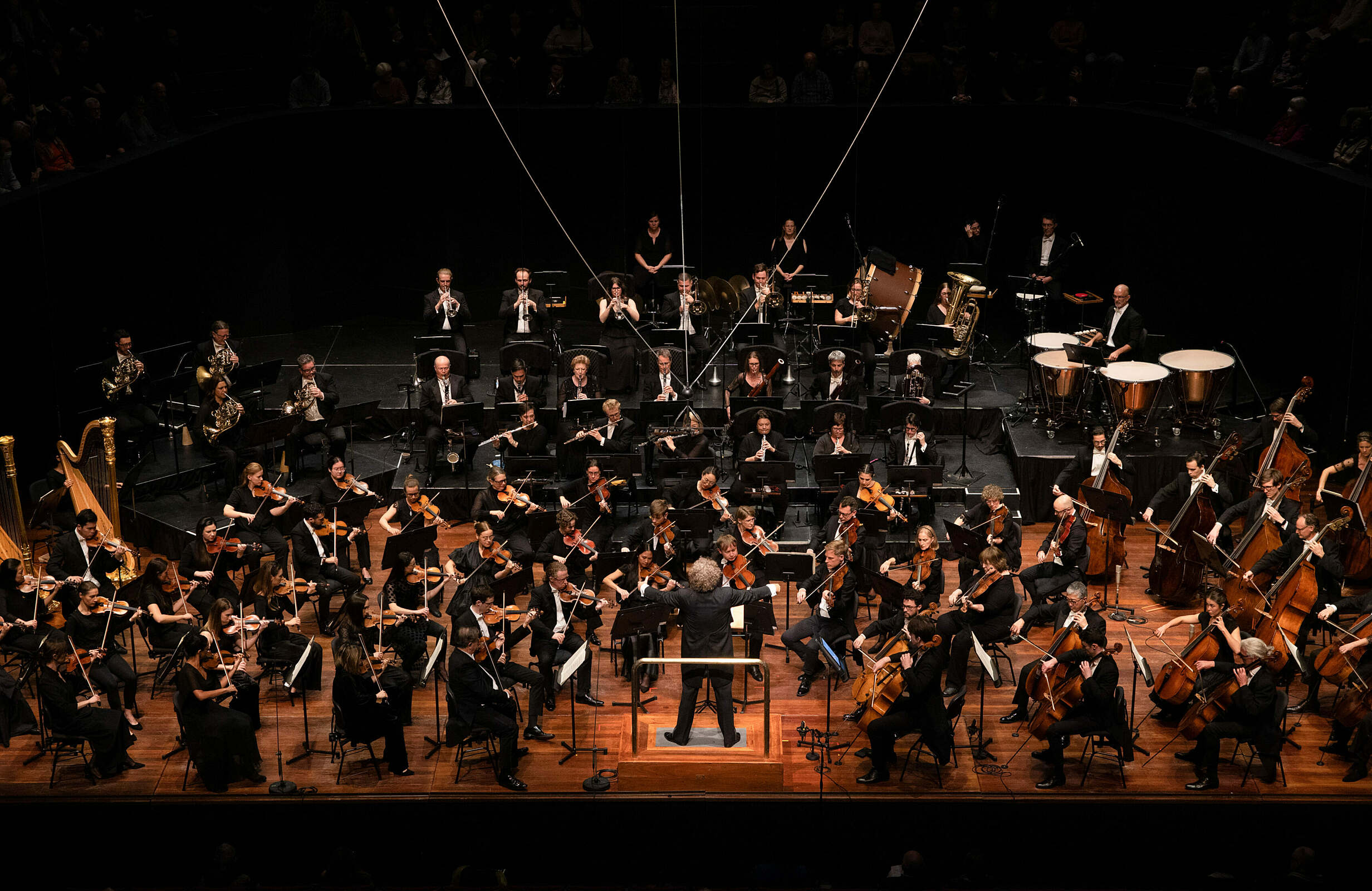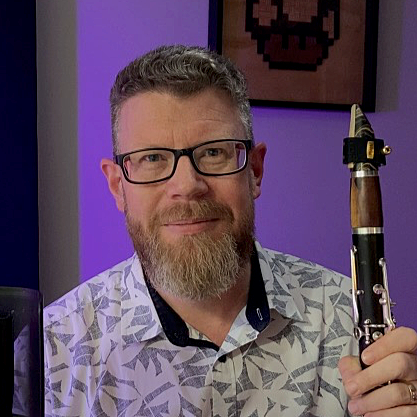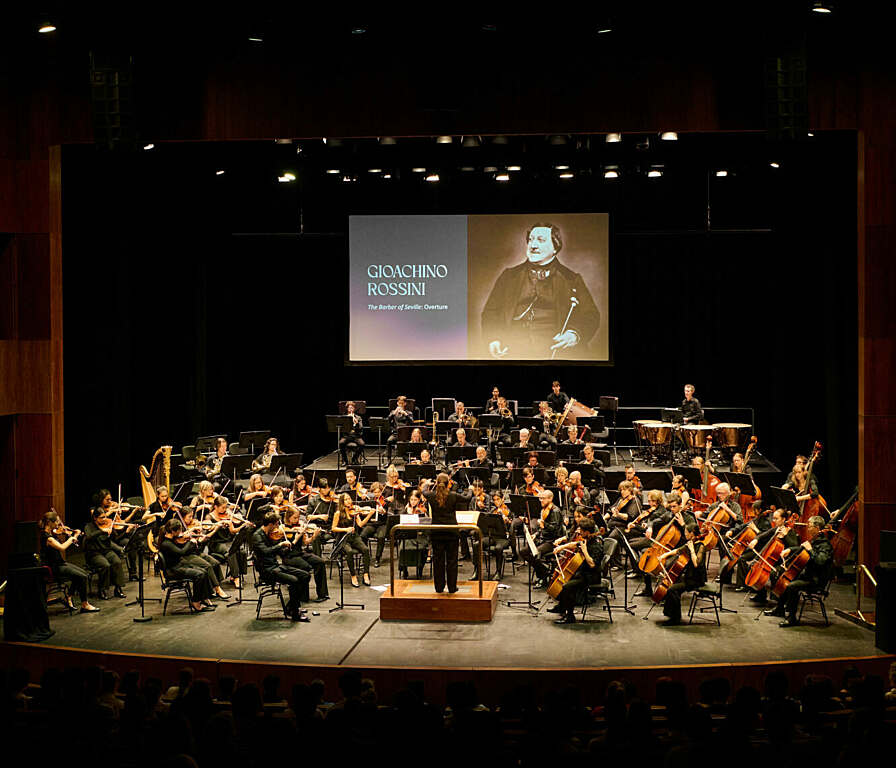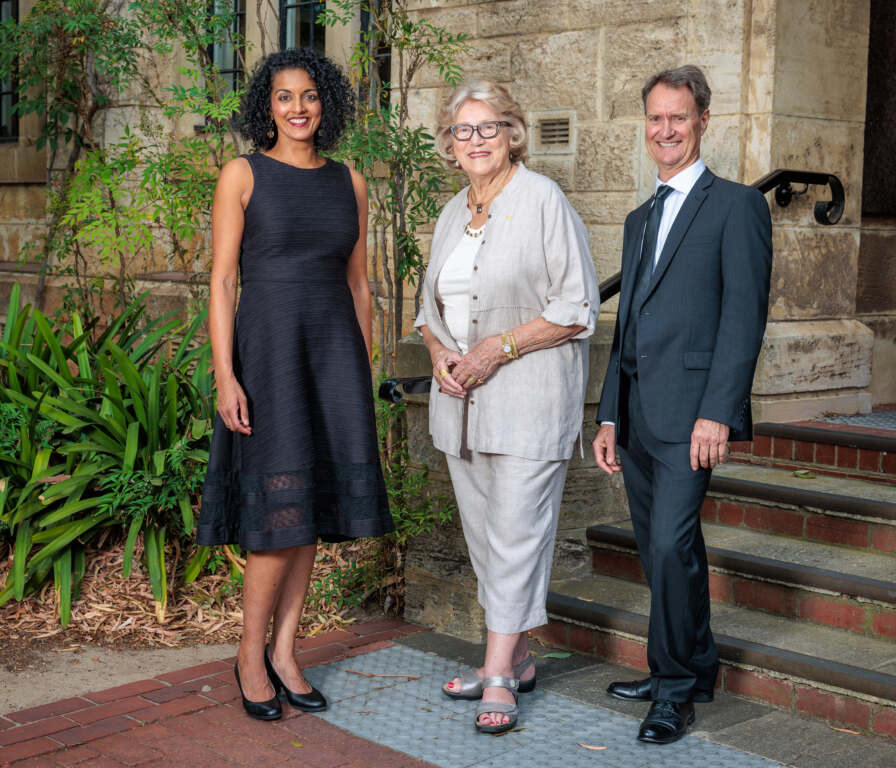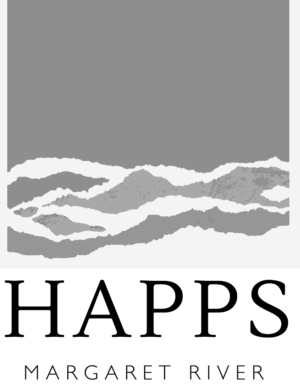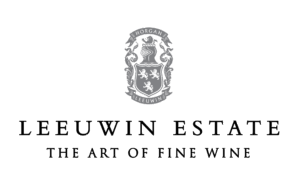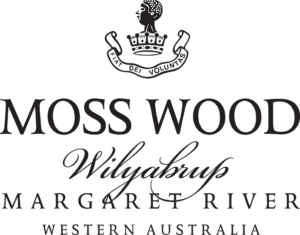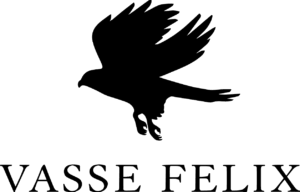Edward Gardner Conducts Brahms
MACA SYMPHONIC SERIES
Friday 11 & Saturday 12 July 2025, 7.30pm
Winthrop Hall, UWA

West Australian Symphony Orchestra respectfully acknowledges the Traditional Custodians and Elders of Country throughout Western Australia, and the Whadjuk Noongar people on whose lands we work and share music.
How to use your Digital Program
Edward Gardner Conducts Brahms
Franz SCHUBERT Symphony No.8 Unfinished (24 mins)
Allegro moderato
Andante con moto
Benjamin BRITTEN Les Illuminations (23 mins)
I Fanfare
II. Villes
IIIa. Phrase
IIIb. Antique
IV. Royauté
V. Marine
VI. Interlude
VII. Being Beauteous
VIII. Parade
IX. Départ
Interval (25 mins)
Johannes BRAHMS Symphony No.1 (45 mins)
Un poco sostenuto – Allegro
Andante sostenuto
Un poco allegretto e grazioso
Adagio – Più andante – Allegro non troppo, ma con brio
Edward Gardner conductor
Samantha Clarke soprano
Wesfarmers Arts Digital Pre-concert Talk
Listen to your digital pre-concert talk below. For more information on this week's speaker, Philip Everall, see About the Speaker.
Listen to WASO
This performance is recorded for broadcast on Thursday 14 August, 1pm (AWST) on ABC Classic. Date subject to change. For further details visit abc.net.au/classic.
Wesfarmers Arts Digital Pre-concert Talk
WASO On Stage
About the Artists
About the Artists
About the Music
About the Music
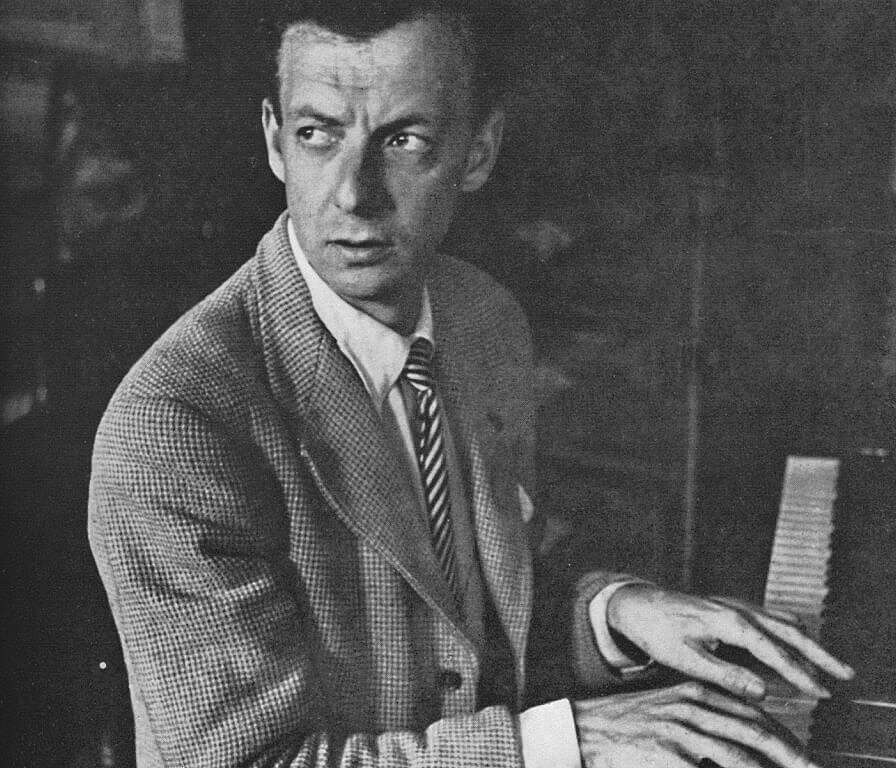
Benjamin Britten
(1913-1976)
Les Illuminations for high voice and string orchestra, Op.18
I. Fanfare
II. Villes
IIIa. Phrase
IIIb. Antique
IV. Royauté
V. Marine
VI. Interlude
VII. Being Beauteous
VIII. Parade
IX. Départ
One night in 1938 Britten and Swiss soprano Sophie Wyss were returning to London by train after giving a recital. Wyss remembers how excited Britten was: ‘he had just read the most wonderful poetry by Rimbaud and was so eager to set it to music.’ By March 1939 Britten had set two of the poems, Being Beauteous and Marine, which Wyss premiered in Birmingham to great acclaim a month later. The remainder of the cycle was composed between then and October 1939, during which time Britten and singer Peter Pears were living in North America.
The two musicians’ trip to Canada and the USA has been retrospectively explained as the response of two pacifists to the inevitable outbreak of war in Europe, but the truth would appear rather more complex than that. Britten and Pears had for some time intended to give a series of recitals in Canada, and Britten’s friend and mentor, the poet W.H. Auden, was by this time residing in the USA. Moreover, Humphrey Carpenter’s biography of the composer suggests that their extended stay was influenced as much by complications in Britten’s love-life at home as by global politics. The British Government’s declaration of war in September 1939, however, made the decision to stay in North America an almost foregone conclusion.
That a composer as fastidious as Britten should be so excited by a poet who cultivated the ‘derangement of all the senses’ seems odd at first. Arthur Rimbaud (1854-1891) wrote all of his influential poetry as a teenager, while scandalising French society by having a tumultuous, drug-fuelled love affair with the poet Paul Verlaine, 10 years his senior and, until Rimbaud’s arrival, happily married. Having survived addiction, homelessness and a gunshot wound inflicted by Verlaine, Rimbaud gave up literature at the age of 21 and spent many of his remaining 16 years as a trader and gun-runner in East Africa. Britten had set Verlaine’s poetry in the extraordinary Four French Songs composed when he was 15, but it was through Auden that he discovered the work of the younger Rimbaud in 1938.
Britten’s obsession with the corruption of innocence – a much-discussed aspect of many of his works – and his powerfully ambivalent attitude to sexuality found resonance in Rimbaud’s poetry, with what Michael Kennedy describes as its ‘dark and tormented sexual images’. (As commentator Christopher Palmer has noted, French composers, ‘deeply conscious of the “difficulty” of [Rimbaud’s] work, have for the most part studiously avoided him’.) Paradoxically, though, Britten’s music is far from dark and tormented. Much of the melodic material is derived from the common major chord, as heard in the fanfares of the first section, and the main melody of Antique. His writing for the voice – and despite Britten’s later stated preference for Peter Pears’ interpretation, it is a work which suits the soprano better – has a crystalline clarity, and the scoring for string orchestra has numerous touches of brilliance. In his introduction to the vocal score, writer Edward Sackville-West noted that ‘it is always a picture, not an idea, that is evoked, and Britten’s settings have rightly the sharp outlines and vivid colours of a missal.’
First complete performance: 30 January 1940, London. Boyd Neel, conductor. Sophie Wyss, soloist.
First WASO performance: 21 August 1973. Tibor Paul, conductor. Gerald English, soloist.
Most recent performance: 21-22 July 1995. Paul Daniel, conductor. Joan Rodgers, soloist.
Instrumentation: strings only.
Les Illuminations
Text & Translation: I. Fanfare
Les Illuminations
Text & Translation: II. Villes
Les Illuminations
Text & Translation: IIIa. Phrase & IIIb. Antique
Les Illuminations
Text & Translation: IV. Royauté
Les Illuminations
Text & Translation: V. Marine
Les Illuminations
Text & Translation: VI. Interlude
Les Illuminations
Text & Translation: VII. Being Beauteous
Les Illuminations
Text & Translation: VIII. Parade
Les Illuminations
Text & Translation: IX. Départ
About the Music
About WASO
About the Speaker
Your Concert Experience
Schools & Education
2025 Annual Giving Appeal
Our Supporters



